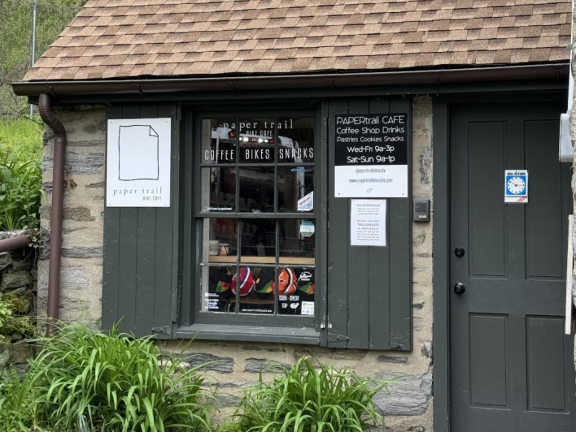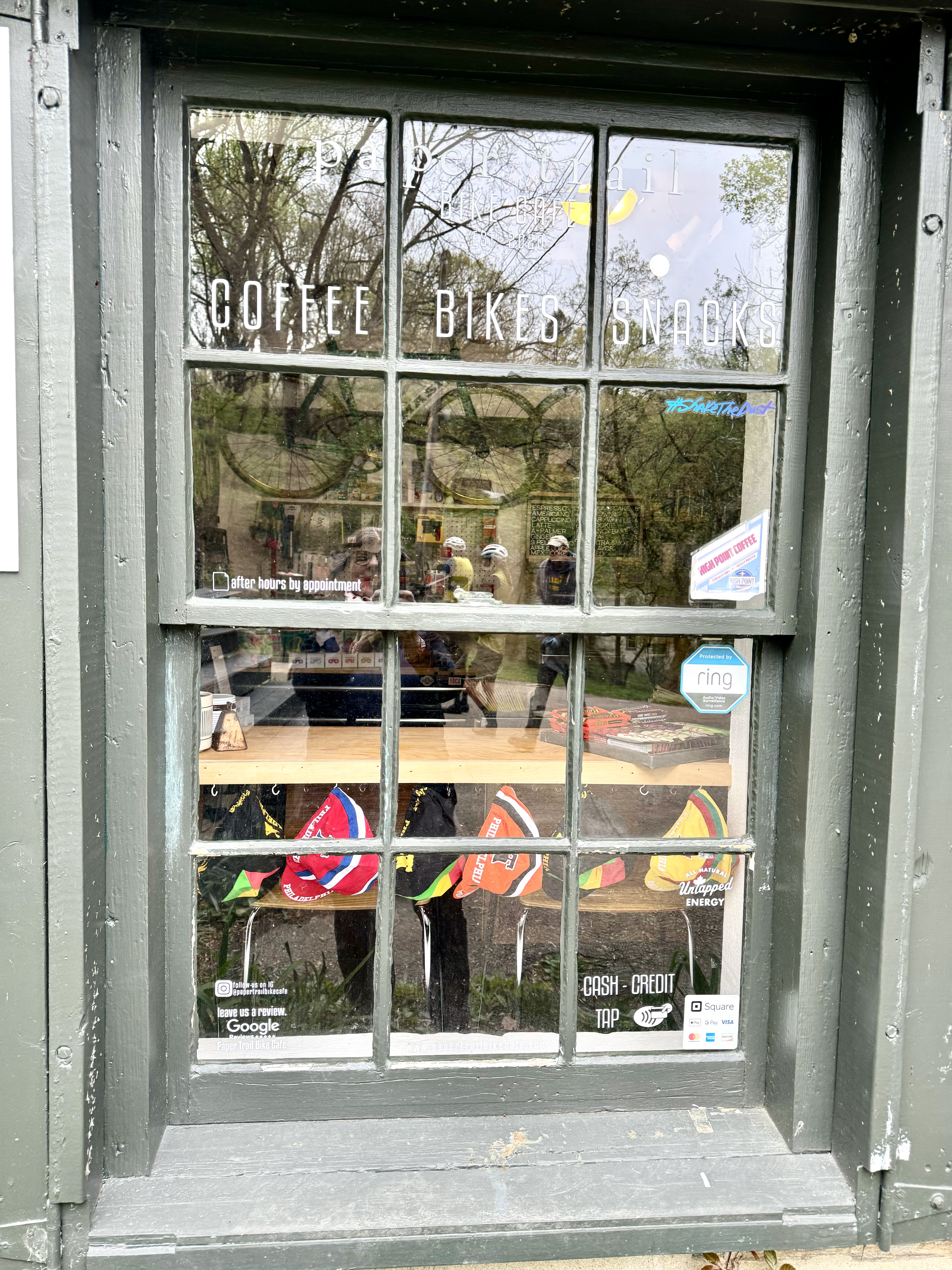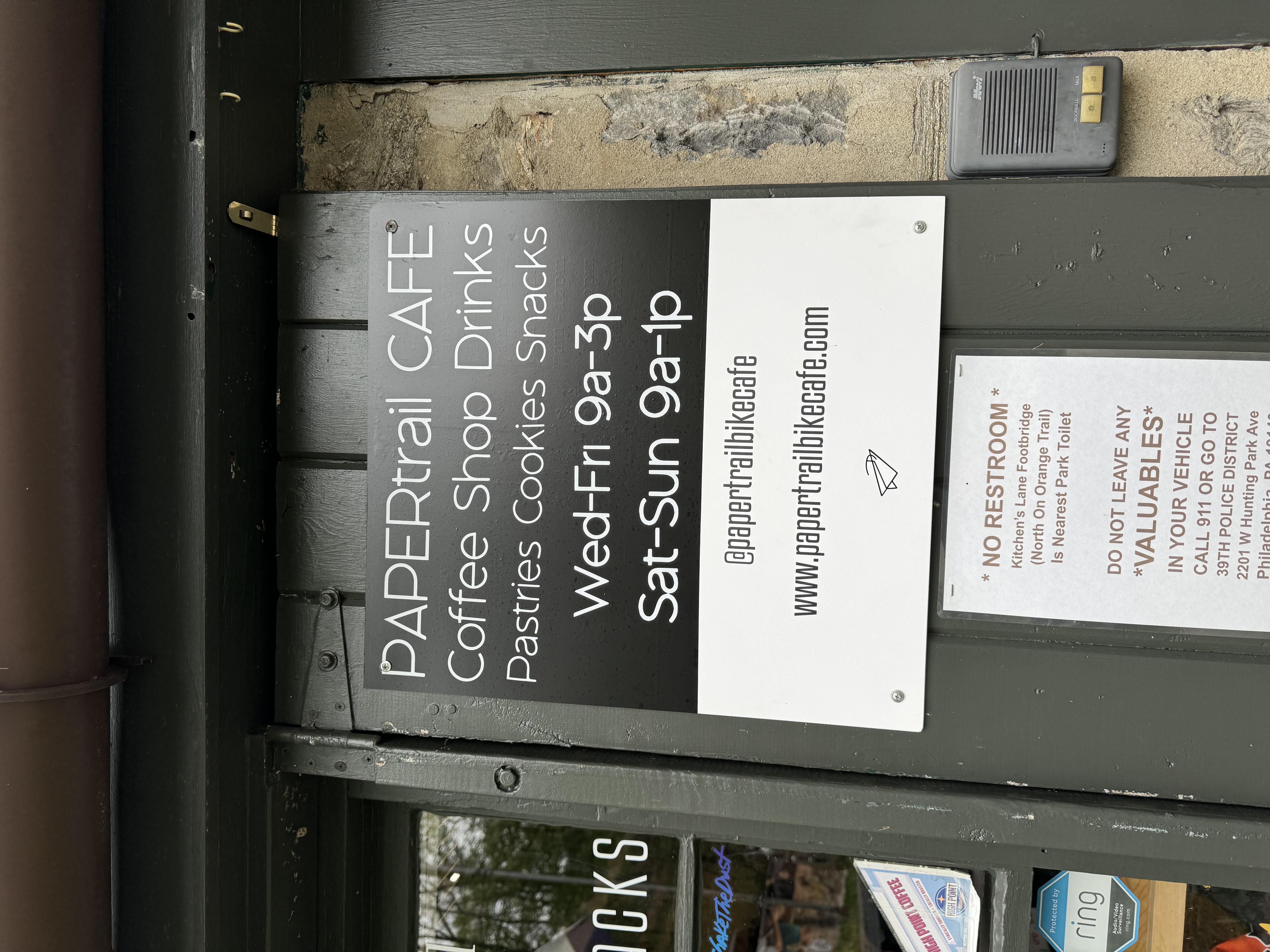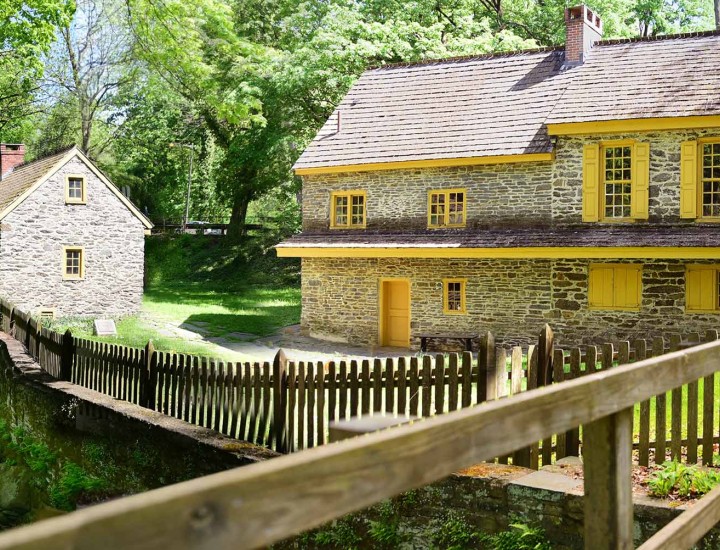Bringing History and Community Together One Cup of Coffee at a Time

Philadelphia is flush with internationally-recognized historic landmarks as well as hidden gems with their own significant histories. Outside of the city, in Germantown, sits a small village called Historic RittenhouseTown, with a few buildings with so much history in their walls, including The Barn. A quaint, stone structure, The Barn is not a building frozen in time but the living home to Paper Trail Bike Cafe, a cafe combined with a cycling business. This is not quite what you would expect from a historical site, and GPA jumped at the opportunity to interview the business’ owner and founder, Paul Daniels.
As the occupant of a building dating back to the 1700s, Paul has always had a deep appreciation for historical structures. When asked about his interest in historical preservation and working with old buildings, Paul shared that he grew up in a Wisconsin home that was built in 1848. He grew up with a mother who was dedicated to preserving the historical bones of that home and the proceeding old homes that they lived in after that.
After graduating with a degree in Economics from the University of Wisconsin, Paul thought he would go on to get a Master’s degree in Environmental Policy and work for the National Trust for Historic Preservation to work on saving old buildings. Eventually, after stints in finance, real estate, and a cycling company, Paul moved to his wife’s hometown of Philadelphia and created his own cycling business and coffee shop to incorporate “a new business with an old building,” which hit all of the marks for him.
“It was an opportunity to blend my desire to work with historical buildings but also continue a career journey in the business of cycling in the cycling industry,” Paul explained. “It was a bit serendipitous: Historic RittenhouseTown was looking for a way to utilize some existing space and I was looking for a business that would incorporate the cycling community in a small, grass-roots start up.”
Everything came together for Paper Trail Bike Cafe to open its doors on March 12, 2020, five days before all restaurants in Philadelphia were shut down due to the pandemic. Yet, in the wake of this chaos, Paul and his business were able to make the most of it. As a cafe and bike shop, Paper Trail was allowed to remain open with a few adjustments. Paul served coffee out of a window of the building for 16 months, but was grateful for how “people were finding Paper Trail because of this unique situation. There weren’t many places in the city for people to meet and have this setting where it felt safe, so I was happy that we could serve that community that was willing and able to get out.”
Now, the bike shop and cafe is as busy as ever, having served 7,000 customers since 2020 and organizing or hosting weekly and annual cycling events that bring people together.
Paper Trail has solidified itself as a staple in the cycling community and also the Historic RittenhouseTown community. The historic village has proven to be the perfect setting for the business, because Paul described it as “the best little village in Philadelphia and maybe all of America. There are always people committed to preserving and continuing the traditions. Everyone cares about the site and it promotes people to be a community because it is such a unique space to have a residence or business in.” Paper Trail is involved in all of the town’s fairs and markets that it hosts, with the intention to try and “never say no.”
While most visitors to Historic RittenhouseTown are locals utilizing the park access and are familiar with the historic village, Paul shared that “almost everyone in America who has that name [Rittenhouse] can pretty directly link to an ancestor that came through Historic RittenhouseTown, so there is certainly a tourist aspect that is people coming to visit their ancestors’ original footprint.” School trips and adult outings often take part in paper making workshops because of the site’s deep history as an original paper mill. You can read more about that history in the overview of Historic RittenhouseTown’s involvement in IDMS 2024 here.
With a background and ongoing interest in historical preservation, Paul is grateful to be a part of a city so rich with history, yet shared interesting insight into what it is like being a part of this historical landscape. “Philadelphia has so many landmarks and so much history that it is highly competitive for historical landmarks, for grant writing, and for opportunities to clue people into the importance of our history at our site versus all of the other historical impacts that Philadelphia has had.”
 He goes on to explain how “we have found our niche as a site but it is challenging. We are thankful that we are on the uptrend; people are talking more about Historic RittenhouseTown than they were a year ago and the hope is that our site will be a place that people want to learn more about. We are becoming a first level Arboretum, we are constantly revising the site to become more manicured, and we are doing more to bring people to the site but also to slow people down while coming through the site.”
He goes on to explain how “we have found our niche as a site but it is challenging. We are thankful that we are on the uptrend; people are talking more about Historic RittenhouseTown than they were a year ago and the hope is that our site will be a place that people want to learn more about. We are becoming a first level Arboretum, we are constantly revising the site to become more manicured, and we are doing more to bring people to the site but also to slow people down while coming through the site.”
For all of the customers he has served himself, Paul shared that “if they were interested, I told them everything I could about that building. It makes people recognize that there are reasons to save things rather than make them disposable and that’s really important, especially in a city where some of these sites can get lost in the margins because there are so many. The stories just have to be found and they have to have a steward.”
Paul has certainly been a revolutionary steward for The Barn and Historic RittenhouseTown by bringing in new people and business. Every small aspect of Philadelphia’s history contributes to its unique heritage, and there is something new to discover about this heritage every day, including this original business in a centuries-old town.

